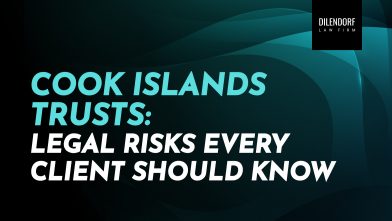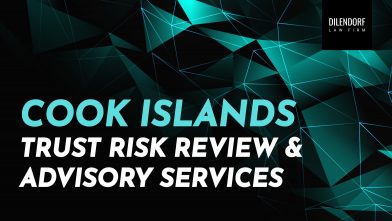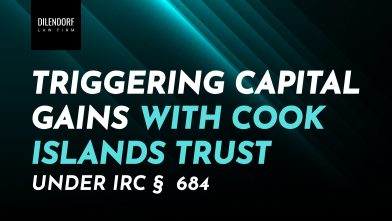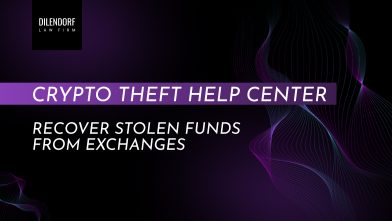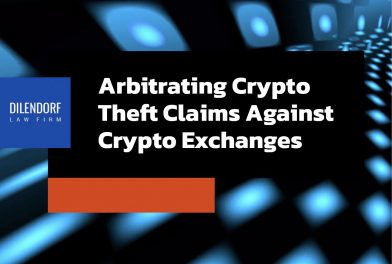How to Launch Cryptocurrency Exchange in Compliance with US Money Transmitter Regulations
You can also download this article in PDF format here.
US and foreign companies looking to launch a cryptocurrency exchange or wallet service in the United States may find the process quite daunting, particularly when seeking a money transmitter license (MTL). With varying degrees of regulations and filing requirements in each of the 50 states, it makes sense to plan ahead and follow a proven strategy to legally operate in the US.
In this publication, we will cover one aspect of operating US exchanges: acquiring an MTL, including four different pathways to accomplish this. Each option will be covered in-depth, as well as recommendations for developing an infrastructure for legal compliance.
We will also review the current status of state and federal statutes related to launching cryptocurrency exchanges in the United States. This step-by-step guide aims to simplify the process considerably.
After applying for the Federal MSB (Money Services Business) license, which is detailed below, there are four unique paths one can follow to operate a cryptocurrency exchange in the United States:
- Apply for MTL in individual states;
- Operate in states which exclude cryptocurrency from their money transmission requirement;
- Acquire an SPDI (banking) license; or
- Partner with an existing banking institution to leverage its national charter license that preempts individual states’ MTL requirements.
Applying for the Federal MSB
According to the U.S. Government, an MSB is defined as any person or entity offering check cashing; foreign currency exchange services; or selling money orders, travelers’ checks, or pre-paid access products; for an amount greater than $1,000 per person, per day, in one or more transactions. A person who engages in the transfer of funds as an MSB is a money transmitter, regardless of the amount of money transmission activity.
Registering with the Federal Government
Before a Money Services Business (MSB) can be launched in the United States, they must first register with FinCEN, which is the U.S. Department of the Treasury’s Financial Crimes Enforcement Network. The Bank Secrecy Act (BSA) requires money services businesses to keep accurate records and file reports for certain transactions in compliance with the IRS.
Registering with FinCEN is relatively simple and can be done electronically by filing FinCEN Form 107, Registration of Money Services Business. The owner or controlling person at the MSB must register by the end of a 180-day period, which begins the day after the date they established the MSB. After the initial registration, they must also renew their MSB registration every other calendar year, by filing another Form 107.
The registration with FinCEN goes beyond simply naming the company or paying a simple fee. It involves providing them with important information about the MSB, such as the type of business it will be, any financial institutions or bank accounts where transactions will be made, the ownership or control of the business, and the number of agents who will be operating in the United States.
MSB Compliance
Money services businesses (MSBs) are heavily regulated in the United States, both by federal law and by statutes in 49 of the 50 states. Under the Bank Secrecy Act (BSA) and pursuant to the Patriot Act, MSBs must register through the BSA e-filing system within 180 days from the date on which the MSB is established. This an important deadline to remember because, for many MSBs, the entity is formed long before they actually begin engaging in business.
When operating an MSB in the US, it is important to develop and implement an anti-money laundering (AML) compliance program. Compliance with federal law requires steps to be taken to prevent individuals from using the company to facilitate money laundering or financing of terrorist activities. A written plan must be in place, which includes the following:
- A designated person to assure day-to-day compliance with the Bank Secrecy Act (BSA)
- Internal controls, policies, and procedures to ensure BSA compliance
- Education and training for appropriate personnel
- An independent review that will maintain and monitor an acceptable compliance program
Additionally, MSBs must file FinCEN Form 112 (Currency Transaction Report) whenever they have a cash-in or cash-out currency transaction, or multiple transactions, totaling more than $10,000 for any one person during a single business day.
Suspicious activity reporting
If a situation arises where the MSB has reason to believe a transaction pattern is suspicious, and it involves $2,000 or more, a FinCEN Form 111 (Suspicious Activity Report) must be filed electronically.
Generally, MSBs that know, suspect, or have reason to suspect that the transaction or pattern of transactions is suspicious and involves $2,000 or more, must electronically file a FinCEN Form 111, Suspicious Activity Report on the activity.
Federal regulators require this reporting to ensure that the United States financial system is not used unlawfully to disguise illicit flows of money.
Option 1: Apply for an MTL in a state where permitted
Money services businesses (MSBs) are heavily regulated in the United States, both by federal law and by statutes in 49 of the 50 states. Setting up a cryptocurrency exchange elicits even more federal scrutiny. However, a handful of states do not regulate such exchanges, and it is possible to apply for and acquire a Money Transmitter License (MTL) when guidelines are followed.
In order to understand how each state views and regulates MTLs, it is important to note that these distinctions are in direct relation to their treatment of cryptocurrency.
- Silent states: These are the states that have not yet regulated cryptocurrency or incorporated the unique characteristics of it into their statutes. One might believe their silence indicates complicity, or a disinclination toward regulation, but most operators believe it signals risk, because acting as an unlicensed money transmitter is a criminal offense in most states.
- Regulated states: While some states have money transmitter laws on the books, not all of them are welcoming to cryptocurrency exchanges. Some have MTL laws but next-to-impossible barriers for smaller companies.
- Remaining states: These states have issued cryptocurrency guidance, but mostly in the form of pronouncements or half-measures, leaving too many uncertainties in the state’s regulatory landscape.
As these laws are always evolving, the list of states in any given category may change, but for now, we will focus on the regulated states with statutes that specifically cover cryptocurrency.
Common state regulatory characteristics
For those seeking an MTL in order to launch a cryptocurrency exchange, it is important to note that no states consider the acquisition of such a license a “right”, but rather a matter of privilege which remains within the state’s discretion.
- Each state ultimately decides whether or not to grant an MTL license, even if the applicant follows all procedures correctly.
- In order to qualify for the application, one’s net worth must meet the state requirements.
- MTL license holders are obligated to file reports with the state, some as often as quarterly.
- Ongoing examinations may be conducted at the state’s discretion and paid for by the examined party.
- Penalty provisions in some states make unlicensed money transmission a criminal offense, while other states require licensees to maintain stringent anti-money laundering programs as a part of state compliance.
- Substantial application fees must be paid in many states.
Each State Has Unique Money Transmitter Licensing (MTL) Requirements
In most states, running a cryptocurrency exchange is looked upon as a money transmitter activity, making it subject to the same state regulations as other money transmitters. However, in certain states, such as Kansas, Pennsylvania, Colorado, and Texas, businesses engaging in certain types of crypto sales are considered exempt from state licensing requirements. Currently, Montana is the only state that has no licensing requirements in place for money transmitters.
National Multistate Licensing System (NMLS)
Most states require MTL applicants to submit their required licensing information and reporting through an account on the National Multistate Licensing System (NMLS). Below are the requirements and state licensing procedures for MTLs, as outlined by the states participating in the NMLS system.
The NMLS web site permits public access to state licensing information for money transmitters. NMLS also includes public information about the licensing of such cryptocurrency exchanges as Bittrex, Circle, Coinbase, Gemini, and Poloniex.
A cryptocurrency exchange that desires to be licensed in all 50 states will be subject to the following costs to meet state licensing requirements:
- Minimum surety bond requirements that range from $1,000 to $500,000 per state
- Application fees that range from $0 to $5,000 per state,
- Licensing fees that range from $0 to $3,750 per state, and
- Minimum net worth requirements range from $5,000 to $2,000,000.
Additionally, a licensed money transmitter is required to comply with the financial disclosure and consumer compliance requirements of each state in which it does business.
Applying for a Money Transmitter License
Applying for an MTL in all of the 49 states that require a license can be done by following the three phases outlined below.
Phase 1 – Qualification
In order to apply for an MTL in a state, the entity must be “qualified” to conduct business in the state, a process that must be confirmed before submitting the MTL application. If a company decides to establish a separate entity, that entity will need to get qualified. A lawyer specializing in such filings and renewals can serve as a registered agency for this process.
Phase 2 – Application Process
A substantial amount of business and personal information is required for the application process, in order to assess the character and fitness of key personnel. It usually takes several months for applicants to gather the required information from key personnel.
Required information may include the following:
- Certificate of incorporation and bylaws
- Corporate organizational chart
- Basic information about the product or service offered
- Background information about the company’s character, fitness, and experience
- Personal information, including disclosures from officers, directors, and certain other parties involved in the ownership
- A three or five-year business plan with projected financials
- Evidence of FinCEN registration as an MSB
- Full description of applicant’s AML program
- Copies of the applicant’s customer and/or client contracts
- Surety bonds or alternative deposits
- Audited and/or interim financial statements
- Fidelity – Errors & Omissions coverage
- Information about agents and delegates
Net worth requirements:
When applying for an MTL through the NMLS website, certain net worth requirements will apply. Amounts may vary based on the projected activity and number of branches, agents, or delegates, but typically range between $250K and $500K. California often requires net worth of $1 million+.
As mentioned above, surety bonds or alternatives will also be required but may increase based on the number of branches, activity, agents, and delegates. Amounts may be as high as $5 million, but most states have a cap of $1 million. The costs for providing these bonds will vary based on the company’s credit rating, but likely will range from 1 to 2 percent of the bond amount.
Phase 3 – Application Approval Timing
Once submitted, states will vary greatly on the length of time they take to issue a license. Generally, the license is issued 1-6 months after filing, unless there are issues with the application. One exception to this rule is New York, which may take 12 to 18 months.
Because of the varying lengths of time involved, applications should be prioritized based on where the business is done, with the first applications going to the states with longer processing times.
Seven states (IL, GA, MA, KS, TX, TN, WA) have streamlined the application process and should be included in the initial application round. Other states may impose additional requirements over and above the standard application, which may result in delays.
Option 2: Apply for an MTL in “No Action” States
Whereas many states exclude cryptocurrency from their money transmission requirements, more and more of these states are treating cryptocurrencies as equal to fiat cash. Consequently, those states require MSBs and money transmitter businesses to obtain a money transmitter license (MTL).
However, while some states require MSBs dealing with cryptocurrency to obtain a license, most states have very general regulations or no laws at all. Even if a state does not require it, many companies will get an MTL licensure if they intend to exchange cryptocurrency for fiat money. Most modern paper currencies, such as the U.S. dollar, are fiat currencies.
Because many state laws change without warning, the determination about state licensing requirements is not something to take lightly or learn about second-hand. It is highly recommended to contact the licensing authorities in each state to obtain a written determination as to whether an MTL is required, as well as other AML compliance requirements.
Because federal law prohibits operating an unlicensed money transmitter business, any violation of state MTL licensure laws could result in the violation of federal law.
Different states have taken various approaches to cryptocurrency within their borders. New York has taken the strictest approach to Bitcoin compliance with their Bitlicense, which requires a 30-page application and a $5,000 application fee.
Rhode Island and Nevada also require licenses, but their requirements are far less stringent. Nevada considered adopting the stricter Uniform Law Commission’s Virtual Currency Businesses Act (detailed below) in early 2019 but ultimately decided against it – for now.
Many other states still have not adopted specific AML compliance regulations, which means a cryptocurrency business can request a “no action” letter, which essentially confirms that the state has no enforceable laws in place for the regulation of cryptocurrency. This is why they are known as “no action” states. A company that obtains such a letter should keep it on file and check in regularly with the state to make sure nothing has changed.
Reliance on “No Action” Is Unsustainable
A “no action” letter might seem like the ideal answer to operating in specific states, but it is important to note that it is only a short-term solution. States are beginning to recognize that cryptocurrency is on the rise, and as a result, they are continually gathering data for enacting their own regulations.
Many states are using the statutory framework of the Uniform Law Commission’s (ULC’s) set forth by the Virtual Currency Business Act as a foundation for their own laws. They see it as a valuable starting point, adding some elements and removing others as deemed necessary.
For instance, California used the ULC framework for AB 1489 (BitAML was represented in the galley at the first public hearing for this law in October 2019). A state like California adopting this legislation would influence a lot of other states to do the same.
Option 3. Obtain an SPDI License
Starting in October 2019, the Wyoming Division of Banking started allowing cryptocurrency and digital asset companies to apply for a Wyoming special purpose depository institution (SPDI) charter.
An SPDI is authorized as a financial institution to receive deposits and conduct fiduciary asset management, as well as custody activity. As a state-chartered depository, a Wyoming SPDI is regulated by the Wyoming Division of Banking and permitted to conduct custody activities for digital securities, virtual currencies, and utility tokens.
Because an SPDI is prohibited from making loans, they are not required to obtain insurance from the FDIC. However, because an SPDI is defined as a bank under Wyoming law, it may refer to itself as a bank and offer cryptocurrency services in all fifty states (subject to certain caveats).
New York Limited Purpose Trust Companies
It is possible to set up a New York limited purpose trust company to engage in cryptocurrency exchange, escrow, and custody services. These companies can be formed through the New York State Department of Financial Services, and provides the following advantages:
- Exemption from the money transmission licensing requirements in a significant number of states in the United States
- The ability to conduct a broad range of custody and fiduciary services related to cryptocurrency assets
- Reassurance for customers that data security, operations, and personnel are under bank-grade supervision and regulatory standards
The disadvantages of this trust company charter include a higher minimum capital requirement and significantly higher costs for compliance due to an extremely rigorous regulatory oversight and protocol.
Option 4: National Banks
Since July 22, 2020, the Office of the Controller of the Currency (OCC) has made it possible for individuals and entities seeking a money transmitter license (MTL) to partner with a national bank or trust company to leverage their ability to provide cryptocurrency custody services.
A popular alternative to seeking an MTL license in all 50 states, this option was made possible by the OCC’s July 2020 Interpretive Letter #1170, also known as Federally Chartered Banks and Thrifts May Provide Custody Services For Crypto Assets, which allows national banks and federal savings associations to “provide permissible banking services to any lawful business they choose, including cryptocurrency businesses, so long as they effectively manage the risks and comply with applicable law.” Please contact us for a list of US banking institutions that actively work with cryptocurrency companies.
Developing an infrastructure for MTL operations and compliance
Not surprisingly, money service businesses are required by law to have a well-conceived anti-money laundering compliance program in place. This can be an onerous regulatory burden for MSBs, as they are treated as if they were financial institutions.
The primary objective of any Anti-Money Laundering (AML) compliance program is to enable a company to positively identify the underlying purpose of a given transaction and verify certain information about the parties involved.
While the requirements of an AML compliance program greatly depend on the size, nature, and volume of transactions handled by a given MSB, there are still minimum standards for what information must be identified and which records must be kept. For example, a bank that handles thousands of financial transactions every day might need a more sophisticated AML strategy, which uses an integrated software program designed to identify and flag the names of parties against various watch lists.
Alternatively, if an MSB only works with a limited group of customers and participating parties, a sophisticated software program may not be necessary. A compliance officer or staff member may be able to identify and evaluate potential concerns about AML compliance concerns. An attorney may also review the company’s AML program to ensure it meets the requirements set forth by the federal government without wasting the company’s resources.
An MTL professional specializing in cryptocurrency compliance issues can develop an infrastructure for MTL operations, including KYC, AML, BSA and anti-fraud compliance. These services may include overarching project management for tracking/reporting, as well as drafting compliance policies, procedures, risk assessment, and training materials.
Setting up a money services business and launching a cryptocurrency exchange in the United States can be a complicated undertaking, but not following the proper regulations can have unintended consequences. An experienced professional in this industry can provide the detailed knowledge and guidance needed to comply with FinCEN regulations, state MTL licensing options, and compliance standards.
Resources:
Federal
- 50-State Survey: Money Transmitter Licensing Requirements
- Definition of Money Transmitter (Merchant Payment Processor) – FinCEN
- Enforcement Actions for Failure to Register as a Money Services Business – FinCEN
- FinCEN Guidance, FIN-2019-G001 – FinCEN
- Money Services Business (MSB) Registration – FinCEN
- FAQs: Virtual Currency Business | Department of Financial Services
- Treasury’s Work to Support Money Transmitters
- State of State Money Services Business Regulation & Supervision
State Money Transmitter Licensing Authorities:
New York
California
- Application for a License to Engage in the Money Transmission Business
- State of California Money Transmitter Laws
- State of California – Application for a License to Engage in the Money Transmission Business
- Money – Transmitter | Frequently Asked Questions
Florida
- OFR-560-01 – Application to Register as a Money Services Business
- OFR-560-02 – Location Notification Form
- OFR-560-03 – Declaration of Intent to Engage in Deferred Presentment Transactions
- OFR-560-04 – Money Services Business Quarterly Report Form
- OFR-560-05 – Pledge Agreement
- OFR-560-06 – Money Services Business Surety Bond Form
- OFR-560-07 – Security Device Calculation Form
- Chapter 560, Florida Statutes – Money Services Businesses
- Rule 69V-560, Florida Administrative Code – Money Transmitters
- Form OFR-560-09 – Disciplinary Guidelines for Money Services Businesses
- Security Device Calculation Form


